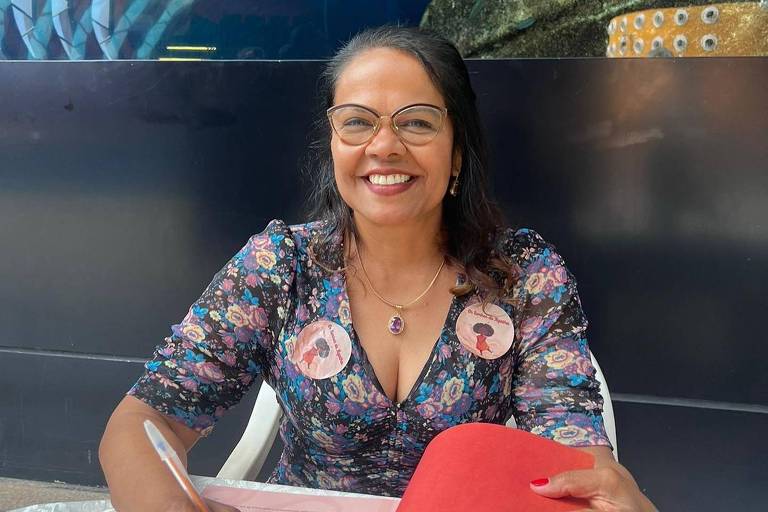The scene of children from quilombola communities with afro hair and bright eyes participating in the storytelling of the story written by her is a memory that Judge Jaceguara Dantas da Silva will cherish for a lifetime. "I saw black children pointing like this: 'Look, mom, it looks like me!' I thought it was beautiful." In the work "Ágatha's Dreams," the judge from TJ-MS (Court of Justice of Mato Grosso do Sul) challenged herself to find a message of hope to help black girls who today face the racism she faced in childhood. From that period, there were memories that Jaceguara revisited during the pandemic while dealing with the anxiety of being away from her mother. "I wanted to strengthen these children and tell them that they are not alone. We do have paths to tread, and we can reach wherever we want."
Born into a humble family in Guajará-Mirim (RO), the daughter of homemaker Leonir and Army sergeant Elias moved to Curitiba. It was also her father who gave her racial awareness. In school, she doesn't remember any other black children. "I was a strange little creature, so much so that children would call each other to show me because they all had blue eyes or were redheads," she says.
The magistrate's mother is of Indigenous and Portuguese descent, which explains her straight hair. "I get very upset when someone asks if I straighten my hair because I would love to have that very afro hair," she says, excitedly.
In recent years, she has approached her own Indigenous identity through a project in partnership with the state government carried out by the Women's Coordination of the court, headed by her. The initiative aims to translate the Maria da Penha Law into eight ethnicities in the South Mato Grosso territory.
